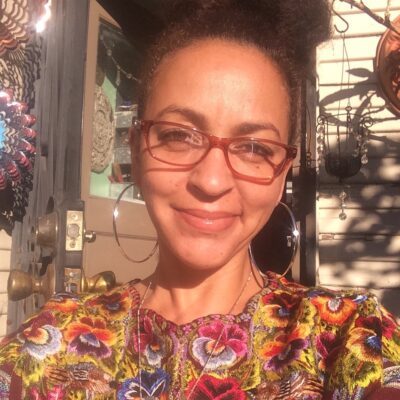Upon graduation in the Fall of 2015 Mandolyn was awarded the Quantedge Award for Academic Excellence which recognizes exceptional sustained academic excellence among senior students (i.e. those who have completed at least 90 units) with a GPA of 4.0 at the University of California, Berkeley. In 2018 she began graduate studies in Education at Oxford University.
In Fall 2013, Mandolyn Ludlum transferred from Los Angeles Valley Community College to the University of California, Berkeley as a Jack Kent Cooke Undergraduate Transfer Scholar seeking to gain knowledge to create and facilitate a global childrens program. Inspired by the holistic approach of anthropology and a belief that we are connected across cultures and borders, Mandolyn selected UCB over other universities based on the existence of ISF as a major and department with an international focus. Being an ISF student provided a unique opportunity for her to explore disciplines such as education, global poverty, anthropology, human rights, and educationdriven by passion and concern about the state of the world for children. ISF provides a scaffolded structure for developing as a writer and researcher, while demanding that students work with a high level of autonomy. Through her experiences at UCB, as well as with studying abroad for a semester at the University of Cape Town in South Africa as a Gilman Scholar to more deeply inform her research, Mandolyn developed into an undergraduate researcher who introduced a new analytical framework of holistic equity within her senior thesis. Although not going directly into graduate school, Mandolyn plans to apply to graduate schools of education and will continue to develop and research holistic equity within an international context. In the meantime, Mandolyn will continue to work with the Hip Hop Caucus (a national human rights and social justice organization), to develop pilot sites for her global childrens program, and to use her platform as a music artist to advocate for children.
The abstract for Mandolyn’s senior thesis Equity and Education: An International Exploration of Policymaking reads:
I Investigated policymaking for equity in education by addressing three primary research questions. First, how has international policymaking for equity in education been pursued within localized contexts and global education trends in the United States, Brazil, and Chile? Second, within that context, what factors explain the failure of outcomes-based education curriculum reform in post-apartheid South Africa to result in holistic equity? Third, what are the commonalities that underpin the failures of these nations to achieve holistic equity? I found that the localized policy mechanisms used to pursue equity in education in the U.S., Brazil, and Chile have been in alignment with neoliberal global education trends such as increased privatization, school fees, and decentralization. I additionally found that the key factors that explain the failure of post-apartheid curriculum reform in South Africa to result in holistic equity are a complex policy subsystem, the formulation and implementation of symbolic policy, and the failure to properly evaluate substantive and procedural constraints. Furthermore, I have found the commonalities between researched nations to be high levels of economic inequality and poverty, de facto forms of segregation, and a failure to meet the holistic equity standard of equal education opportunity. Policymaking for equity in the U.S., Brazil, Chile, and South Africa has led to some progress, but has resulted in reforms that perpetuate educational inequities.
